Andrew J. Rausch – Interview
Stephen King is, without question, one of the greatest writers of our time, known around the world as the scariest storyteller of our age. You can read his books and get scared or enjoy a wonderful tale, but what about the man himself?
There are many books out there by very talent authors such as; Bev Vincent, Stephen Spignesi, Robin Furth, Lee Gambin, and many others who have written books about Stephen King and/or his works. You can now add acclaimed author, Andrew J, Rausch on that list.
Andrew is originally from the heartland of America: Kansas. Born May 4, 1973, Andrew has many titles under his belt: Journalist, actor,screenwriter, film producer, and of course, author. He is even a heart transplant recipient. Andrew has written for magazines like Shock Cinema, Screem, and has over 37 books. One of those latest books, is a collection of interviews of writers, filmmakers, and authorities all discussing master storyteller, Stephen King.
Tony Northrup – You have written several books about Hollywood, the film industry, directors, and celebrities. What was it like growing up in middle America Kansas and when did your love for the film industry begin?
Andrew J. Rausch – Like a lot of kids, I grew up watching movies. In rural Kansas, there isn’t much of a variety. All we would see was whatever big tent-pole movie was out at the time. But I really started to love film and appreciate it as an art form in 1994 when I first saw Pulp Fiction. I then became a huge fan of Quentin Tarantino’s and ultimately began studying film because of him. He also became a huge influence on my fiction writing, as I primarily write crime fiction (although I do write some horror).
As for Kansas, it’s pretty horrible, honestly. There are the normal horrid things one might associate with Kansas, like the inbred hillbillies in the giant pickup trucks, but those aren’t the worst part of being from Kansas. The worst part is that, inevitably, wherever you go in the world, someone makes a Wizard of Oz joke. And it’s usually the same joke (either “where’s Toto?” or “we’re not in Kansas anymore”), and they always think they’re being extremely clever.
TN – As a writer who has covered a variety of different areas of film, who are some of your influential actors and some of your top favorite films and why?
AR – I love the actors who were big in the 1970s, like Robert De Niro, John Cazale, Al Pacino, Meryl Streep, Dustin Hoffman, Richard Dreyfuss, John Cassavettes, etc. That was a different time, when actors and filmmakers were trying newer, edgier things. My favorite actor ever is Kevin Costner, which generally elicits a laugh or two. I don’t claim that he’s on the level with any of those people I just named, but I am fond of his work.
TN – Your career as a writer began working for a variety of magazines such as, Shock Cinema magazine, Screem magazine, and others. Tell us how that came about and what did you find most interesting about the job?
AR – Actually I started out working as a journalist for a local newspaper and then later doing film reviews for another. But I wanted to write for magazines and kept working at it. One of my first gigs was interviewing Ian McKellen for George Beahm’s now-defunct Phantasmagoria Stephen King newsletter. I was supposed to do another interview for him with Tom Gordon, who was actually my favorite baseball player long before Stephen King wrote about him. But that interview never panned out.
I love writing for magazines, and I write for a lot of them now. My favorite part of all that is meeting people whose work I admire. I enjoy interviewing people. I grew up reading Stanley Wiater’s books of interviews with people like Stephen King and Clive Barker, and that kind of helped push me to doing some of those kinds of books today. Interviewing Stanley for my newest book on King was a real treat, but it was intimidating because he’s one of the absolute best at this.
TN – You have written books about the film industry ranging from the history of Hollywood to the Top Greatest Films to war films to Blaxploitation films. You’ve covered icons like Orson Welles to Martin Scorsese, which of these books did you find most interesting researching? Which one was the most challenging? And, what area of the film industry would you like to cover next?
AR – I’m currently working on a book about astronauts, and that’s the most thrilling book I’ve done because it makes me really work outside of my normal wheelhouse. I don’t know that much about NASA and astronauts, so I have to really do my research before interviewing these folks. That excites me. As for the film stuff, I just finished a book on an early film Quentin Tarantino made but never finished as a young man. I got to interview Tarantino himself and he helped out, which was great. I’m also working with another author who has been a huge influence on me, Joe R. Lansdale, on a couple of projects.
As for what I’d like to cover next, I’ve inked a deal to do a book on the John Wick film series. I’m oddly excited about that. I’m also going to be doing a book about Gary Graver, who was Orson Welles’ cameraman on several films. Gary and I wrote a memoir together before he passed away a decade ago. I miss Gary and want to pay tribute to him. He was a neat guy who worked with filmmakers as varied as Orson Welles and Ed Wood, bedded Playboy models and starlets, and secretly directed nearly 400 adult films.
TN – Not only are you a very well-known author, but you have also made many Independent films as well. Which is more challenging: writer or filmmaker?
AR – I don’t know that I’m all that well-known, but I certainly appreciate the compliment. Things are starting to work out for me now, but it’s taken a long time to get here. This year I will publish my 37th book, so that gives you an idea how long and hard I’ve been working at this.
The films are harder. The reason is simple: I’m a better writer than I am at doing any of the film stuff. I wrote one film I’m proud of but is not very good. That’s the horror-comedy Dahmer vs Gacy. I act in several movies and die pretty quickly in all of them. I always joke that if you see me on screen, some shit is about to go down. I’m only good in one of them, and it’s a movie that hardly anyone has seen. It’s a schlocky B-movie called Evil Ever After about a samurai sword-wielding transvestite out for revenge. I have a brief scene as a drug dealer who ends up, well, dying, as usual.
You know what’s really funny to me? I’m in three films with porn star Ron Jeremy. None of them is a porn movie. But the part that makes me laugh is that I’m probably one of the only people who has appeared in three films with Ron Jeremy without ever having had to have sex with him or see his penis. (I’m eternally thankful for this.)
TN – You were recently in Stephen Spignesi’s new book about Stephen King, AMERICAN MASTER. Tell us how that came about and have you ever met Spignesi or Stephen King?
AR – I have never met either Steve. Stephen Spignesi was a guy whose work I’d become familiar with, like most people, through his early books on King. In the late nineties, when I was first working towards being a serious writer, I met Steve through a mutual friend, George Beahm. Steve was a neat guy and I was kind of in awe of him. He seemed like he had done so much. (This was fifty books ago! How does he do it?) He helped me out a lot, answering my questions and whatnot. He wrote an essay for an early book on Tarantino that never ended up being completed, and he eventually helped me get my first publisher and agent. He has been a dear friend and has done more for me than I can ever put into words. I love the guy dearly, but we’ve never met and, to be honest, I think we’ve only ever spoken on the phone maybe three times, and most of those conversations were a long, long time ago. But we continue to work with one another. Steve is in my newest book on King, wrote a piece for my newest book on Tarantino (it’s my second), and has a short story in my forthcoming anthology A Time for Violence (which I co-edited with Chris Roy).
As for meeting Stephen King, I never have. I was fairly close to getting an interview with him back in 1999 for a book of interviews with movie directors, but then he got hit by the van and the interview never happened.
TN – When did you first get introduced to Stephen King and what is your favorite book & film of his? Which of his works is the most influential as a writer and film fan such as yourself?
AR – The first King book I read was either Carrie or Pet Sematary, I can’t remember which. I read them both very closely together when I was still in middle school. Both had an impact on me, but Pet Sematary had the biggest one. It is, to this day, my favorite King novel. I’m re-reading it now for the eighth or ninth time. I love his work. Early on when I first started writing, I wrote a lot of King rip-offs, none of which saw the light of day. And you should thank me for that fact, because they sucked. My writing today is very different from King’s, but he was the first writer that I took seriously. And there is no one who crafts better characters than King. He’s an inspiration. My characters tend to be much more basic than his, and I have a lean style that is closer to Hemingway or Leonard (and I’m not saying on their level) than King, but I admire his work so, so much. I haven’t loved every book he’s done, but the ones I have loved, I have really LOVED with a capital “L.”
TN – Your latest book, PERSPECTIVES OF STEPHEN KING, is a collection of interviews with some of the best in the literary world and those who have worked with Stephen King. Tell us how this book came about and who did you find most interesting that you interviewed?
AR – Years ago I read a book by Peter Tonguette, a writer I used to know but have lost contact with. It was a collection of interviews about the work of Orson Welles. This was the first time I’d ever seen such a book, and it really is the book that led me to do this book (as well as a similar book on Tarantino and a forthcoming one on Elmore Leonard).
As far as what interviews I enjoyed most, I can say this: I enjoyed them all for completely different reasons. It was nice to interview Steve Spignesi, as we hadn’t really gotten to talk much prior to that. And I also got to interview other people I had only known by Internet at that point, like Tyson Blue and Kevin Quigley. And I got to meet guys like Paul Tremblay and Richard Chizmar, which was pretty cool. But most importantly for me, it was the first time I got to speak to Joe Lansdale, who has become an important part of my career since. I’ve interviewed him for several projects, am publishing a short story of his in my new anthology, have him in my forthcoming book on writing methods, and am now doing a book on him for the University Press of Mississippi (with Mark Slade). That was great because Joe is another writer who has had a tremendous influence on me as a writer.
TN – What was the most difficult and most challenging part of the making of this book?
AR – Speaking to all these people who know so much about King and trying not to screw anything up. I wanted to know my shit and not make any faux pas. There’s a guy named Robert Bly who once wrote a quiz book about Stephen King’s work and made tons of mistakes. So much so that people like me now know his name. So with Bly in mind, I wanted to tread lightly and not make any huge fuck ups like he did. But the main thing I had going for me was that I had actually read (most of) King’s work, whereas I’m fairly certain Bly hadn’t.
TN – I, personally found your interview questions quite enjoyable and detailed. Do you go in each interview with limits or do you prefer the “no holds barred” approach?
AR – No limits. I go into the interviews knowing what I’m going to talk about but open to talking about other things that might come up. But there are no limits. Thankfully there was no one I had to really be afraid of talking to here. There are occasions when I’m interviewing other people for other things and have to bring up things like sexual misconduct that they don’t want to talk about. But that’s the job. As an interviewer, you aren’t there to kiss their ass, you’re there to ask the questions the reader wants to know the answers to.
TN – How long was the whole process of the book from first typed word to print?
AR – Most of the work was done within a year’s time, but it actually took about a year and a half because I had a heart transplant in the middle of it, setting everything back a bit.
TN – What is the main goal you wanted to achieve with this new book?
AR – I just wanted to celebrate King’s work in a way that hadn’t been done before. There are probably a hundred books on King now. Hell, I’ve written three of them. So I wanted to do something different, have a different approach, and that was Q&A interviews with authors, experts, and collaborators. Since everyone has different reasons for liking King’s work, and everyone has different takes on the work, I wanted to find out what these particular things were for each of these different people.
TN – With the long list of books you’ve written, what is your greatest moment so far with your written accomplishments?
AR – There are a few, and they are all happening now. My greatest non-fiction achievement is my book My Best Friend’s Birthday: The Making of a Quentin Tarantino Film, which is coming out in July. My first book, way back in the nineties, was going to be about Tarantino, but it never panned out. But I feel like this one is different from anything else that has been done on him to date. And he participated, so I feel like this is me finally accomplishing a thing I set out to do almost 25 years ago.
My biggest fiction accomplishment is my new novel, Bloody Sheets, which comes out at the end of this month. I feel like it’s the best piece of fiction I’ve written to date. I feel like it’s a combination of pulp crime, which I enjoy writing, and a topical work that inadvertently addresses some important social issues that are important to me. (It’s about a black father avenging his son’s death after he is murdered by the KKK.) I’m proud of this book, and it’s also been optioned for film. Myself and my frequent writing partner David C. Hayes (Rottentail) are writing the script now.
My most personal fiction accomplishment is my forthcoming novel, Layla’s Score, which comes out this fall. It’s a crime story about characters that are not me and my daughter Josslyn, but really are, you know? In the same way that Stephen King modeled Charlie McGee after his own daughter, I modeled Layla after Josslyn. Not just her though, but also my other four children, Jordan, Jaiden, Jalyn, and Julian. But mostly Joss, because she’s the one who’s around all the time, as the others are much older now. The characters in the book are black, so they’re not really us, but you know, they totally are.
So this is a big year. I have no less than six books coming out this year: an anthology containing stories by the likes of Richard Chizmar, Joe Lansdale, Stewart O’Nan, etc., two novels, the book on Tarantino, the book on writing methods, and my second short story collection. I feel like I survived my heart transplant to finally achieve my life goals, and all of those things look like they’re finally happening now.
TN – As you know, there is the Stephen King Dollar Baby short film program, where filmmakers can actually adapt a Stephen King short story. Since you have made Independent films and written books about Stephen King, would you ever consider making a Stephen King Dollar Baby film based on one of his short stories? If so, which one and why?
AR – I’ve never considered this. I should be clear here though, even though I’ve worked on lots of films in jobs such as writer, producer, actor, composer, casting director, transportation, etc., I have never actually directed anything. Directing is hard work. Just ask Stephen King. There’s a reason he stopped doing it. But…if I was to do it… Hmmmm… Maybe “Survivor Type.” That could be something, huh? Although things like “Dolan’s Cadillac” or “The Ledge” are much closer to the kinds of things I like working on today, but as we all know, both of them have been made. The movie of Dolan’s Cadillac wasn’t very good, but it’s out there.
TN – With the growing popularity of Stephen King with new books, tons of adaptations for film and television, social media fan pages discussing King’s works, and Stephen King merchandise being made now more than ever – What is your personal opinion on the Stephen King now as opposed to the Stephen King of the 1970’s, 80’s, and 90’s?
AR – This is a difficult question. I feel like King is a better, more polished writer today than he was in the seventies, but if I’m being honest, I prefer those old books. I think I liked the hungry, less polished stuff more. He’s written some really great stuff since then—Bag of Bones is one of the best-written things I’ve ever read—but there’s something about those older books that really speak to me. Pet Sematary, Salem’s Lot, The Shining, Carrie, The Dead Zone… So many things. You know what my favorite King book really is? It’s Night Shift, his first short story collection. I love his short stories most of all. And I’ve loved all of the collections, but that one and Skeleton Crew are my faves.
TN – In Stephen Spignesi’s latest book about Stephen King, he asked some of his contributors if we’d be reading King 50yrs from now and I asked him that very question in my latest interview with him, so I’ll ask you as well: Will we be reading Stephen King 50yrs from now? Will he be as legendary as Poe and Lovecraft even then?
AR – I think so. His work transcends horror, as you know. I think he will definitely be remembered. Right now I’m working on a book about Elmore Leonard that is very similar to the book on King. And I’ve been thinking about whether or not Leonard will be read in fifty or 100 years, and I think it’s a lot less likely than King. I think most of the writers we hold up today will fall by the wayside as time goes on. But King has written some really great books. I believe books like The Stand, It, and the Dark Tower books will have a long life. It would be interesting to be able to know what books will be remembered and how they will be perceived.
TN – There are SO many books about Stephen King that have been covered, but is there one area or type that hasn’t that you would like to write someday? If so, what would it be?
AR – I’ve got an idea I’m pursuing, but I can’t really say at this time. But there are still more specific avenues of King’s work that are well worth examining or examining more closely.
TN – What makes your PERSPECTIVES ON STEPHEN KING a cut above all the other books about King?
AR – I don’t know if it’s a cut above. I mean, there are so many great books out there by the Spignesis and the George Beahms and the Douglas Winters… I just wanted to have a place at the table and not embarrass myself doing it. I wanted to put together a book that is told in the words of the people who know and love him and his work, and that’s what it is. I’m proud of it, but I don’t think I reinvented the wheel or anything.
TN – You stand with an honorable circle of writers that have written about Stephen King like Stephen Spignesi, Bev Vincent, Robin Furth, Richard Chizmar, Lee Gambin, and a few others. Tell us your personal feelings about your colleagues and what’s like being a part of such amazing talents?
AR – I love them all and adore their work. Everyone knows about a lot of these other guys, but Lee Gambin is the one to keep your eye on. This guy is the next big thing. In fact, he already is and people are still discovering him. He’s a great guy and the two books of his that I’ve read, his books on Cujo and Christine, are spectacular. His book on Cujo is absolutely the reason my new book on Tarantino is an oral history. I had always wanted to do an oral history and had even written a novel about Elvis as an oral history, but… Lee’s book just kicked the fucking door in. He’s amazing. He allowed me to write some essays for a book he’s got coming out next year about “Very Special Episodes” of old television shows, and I couldn’t pass. I love working with talented writers, and he’s certainly one of them.
TN – Lastly, What would you like most for readers and Stephen King fans to take from reading your new book and what’s next for Andrew J. Rausch?
AR – I just want readers to maybe learn a few things they didn’t already know. I tried my best to ask all the right questions to get some occasionally different answers or perspectives, and I hope I did that. I hope the reader enjoys the book and walks away after reading it feeling like they got their money’s worth.
As for the future, lots and lots of books. I tend to think of myself more as a fiction writer today and emphasize that a bit more, but I’m still working hard on lots of nonfiction projects, including a couple of autobiographies I’m assisting on. I just want to keep this new heart beating, enjoy my family, and write things that people will hopefully want to read.
Tags: Andrew J. Rausch, Andrew J. Rausch interview


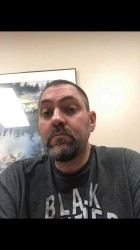
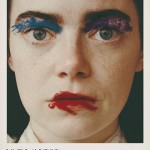
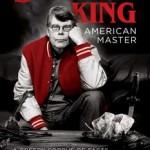

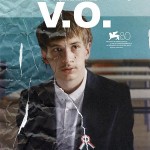 UNA SPIEGAZIONE PER TUTTO – Gábor Reisz
UNA SPIEGAZIONE PER TUTTO – Gábor Reisz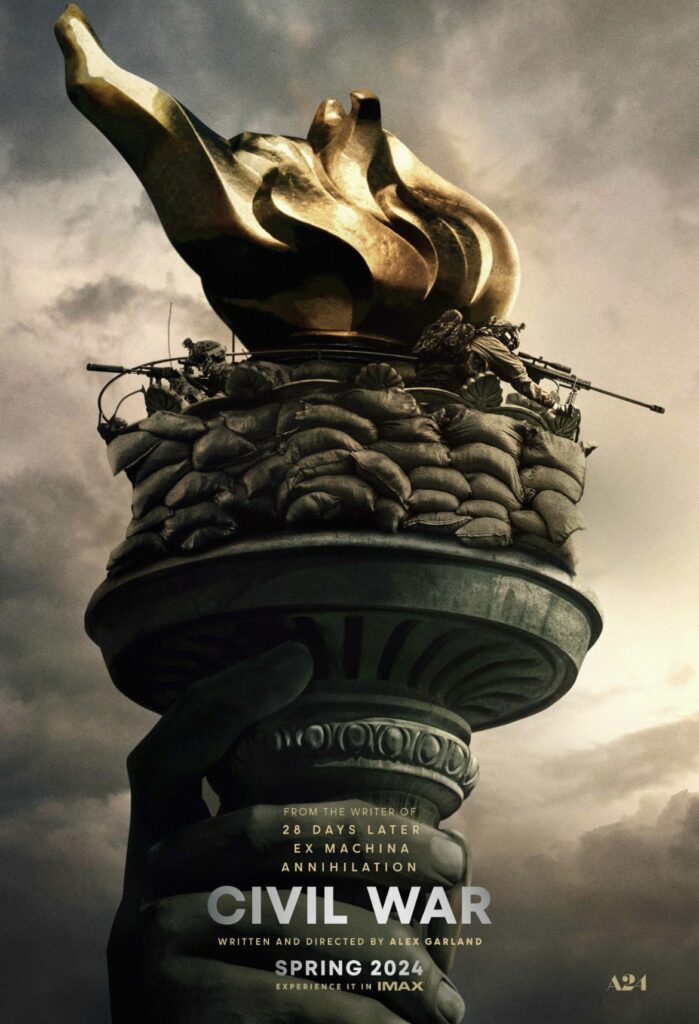 CIVIL WAR – Alex Garland
CIVIL WAR – Alex Garland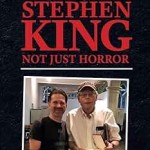 (English) STEPHEN KING NOT JUST HORROR – Hans-Ake Lilja
(English) STEPHEN KING NOT JUST HORROR – Hans-Ake Lilja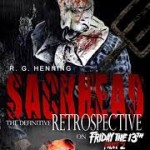 (English) SACKHEAD:The Definitive Retrospective on FRIDAY THE 13th PART 2 – Ron Henning
(English) SACKHEAD:The Definitive Retrospective on FRIDAY THE 13th PART 2 – Ron Henning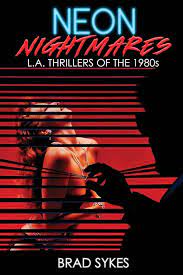 (English) NEON NIGHTMARES: L.A. Thrillers Of The 1980′s – Brad Sykes
(English) NEON NIGHTMARES: L.A. Thrillers Of The 1980′s – Brad Sykes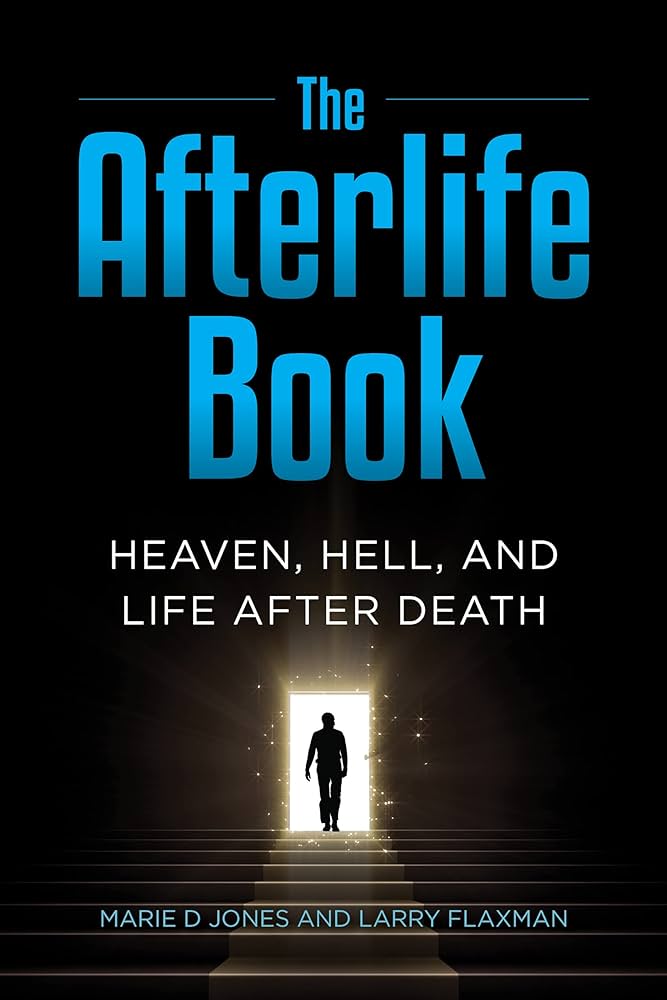 (English) THE AFTERLIFE BOOK: Heaven, Hell, And Life After Death – Marie D. Jones &
(English) THE AFTERLIFE BOOK: Heaven, Hell, And Life After Death – Marie D. Jones &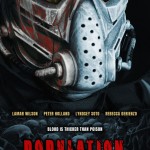 (English) POPULATION PURGE – Brian Johnson
(English) POPULATION PURGE – Brian Johnson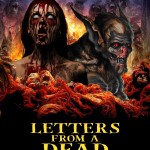 (English) LETTERS FROM A DEAD WORLD – David Tocher (review & interview)
(English) LETTERS FROM A DEAD WORLD – David Tocher (review & interview)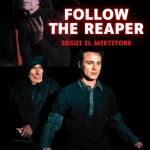 Trailer per FOLLOW THE REAPER di Eros Bosi
Trailer per FOLLOW THE REAPER di Eros Bosi